
Aadya Sharma profiles the greatest run-scorers in the history of the Cricket World Cup.
To bet on the World Cup with our Match Centre Partners bet365 head here.
Fifty-over cricket may be facing increased threats to its relevance in the global game, but the ODI World Cup continues to serve as the pinnacle of limited-overs batting. T20s have created their own brand of power-hitting, but still pale in comparison to the skillset required to succeed in the grandeur of the World Cup, cricket’s biggest showpiece event.
With the thirteenth iteration soon to get underway, we list the top 10 run-scorers in Cricket World Cup history.
Tillakaratne Dilshan (1,112 runs @ 52.95; 4 100s; 4 50s)
[caption id=”attachment_107962″ align=”alignnone” width=”800″]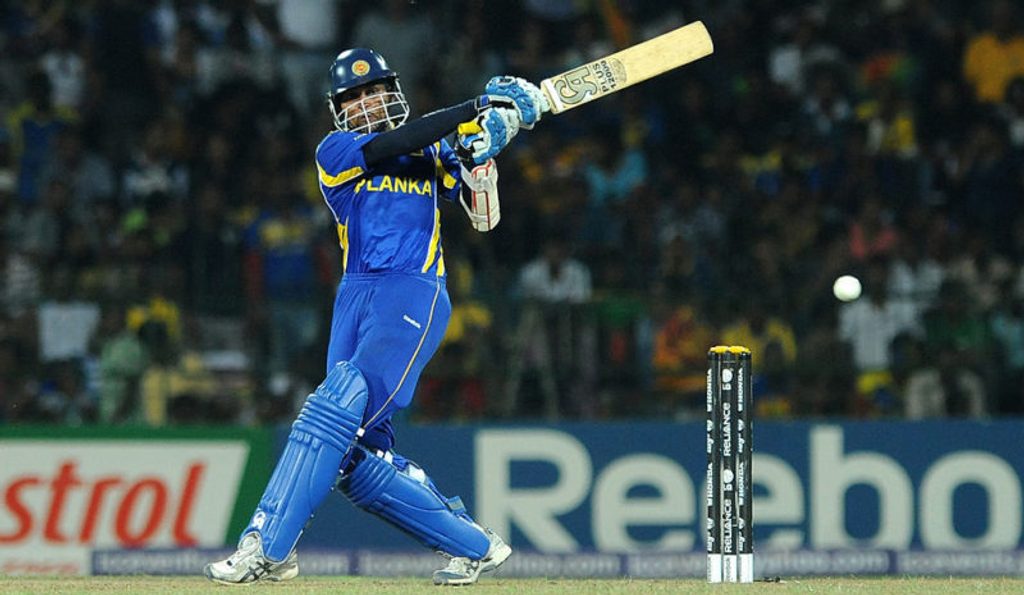 Dilshan was the leading run-getter in the 2011 World Cup[/caption]
Dilshan was the leading run-getter in the 2011 World Cup[/caption]
He might have been a late bloomer in international cricket, but Dilshan made up for lost time with a brilliant run in the latter half of his career, including two good World Cups in 2011 and 2015. The highest run-getter in the 2011 edition with exactly 500 runs, Dilshan was known for his brisk starts at the top, translating quite a few of them into big scores.
His 161 against Bangladesh in 2015 is still the highest score by a Sri Lankan batsman in World Cup history.
Shakib Al Hasan (1,146 runs @ 45.84; 2 100s; 10 50s)
[caption id=”attachment_578771″ align=”alignnone” width=”914″]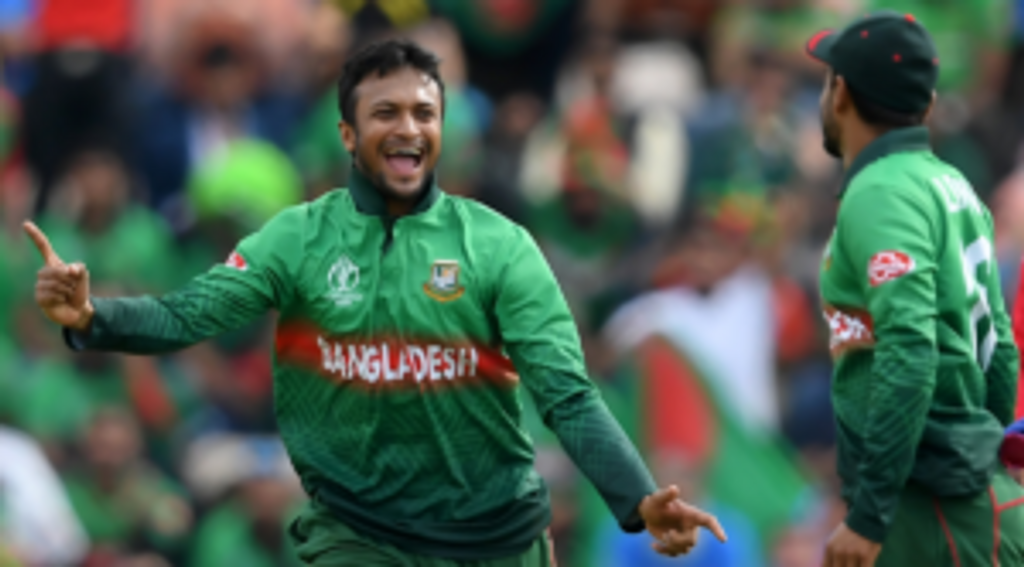 Shakib Al Hasan took a World Cup five-for against Afghanistan in 2019[/caption]
Shakib Al Hasan took a World Cup five-for against Afghanistan in 2019[/caption]
The only player still active in ODI cricket on this list, Shakib’s blistering run in the 2019 World Cup catapulted him up the rankings. He averaged 86.57 in the tournament and passed fifty in all but one of his eight innings. His crowning glory were back-to-back hundreds against eventual winners England and an unbeaten century against the West Indies. He also took his only World Cup five-for in that edition of the competition, rattling through Afghanistan in Southampton.
Shakib goes into the 2023 competition amidst some controversy over the dropping of Tamim Iqbal. His exclusion means Shakib will captain Bangladesh in India.
Jacques Kallis (1,148 runs @ 45.92; 1 100s; 9 50s)
[caption id=”attachment_107958″ align=”alignnone” width=”1019″]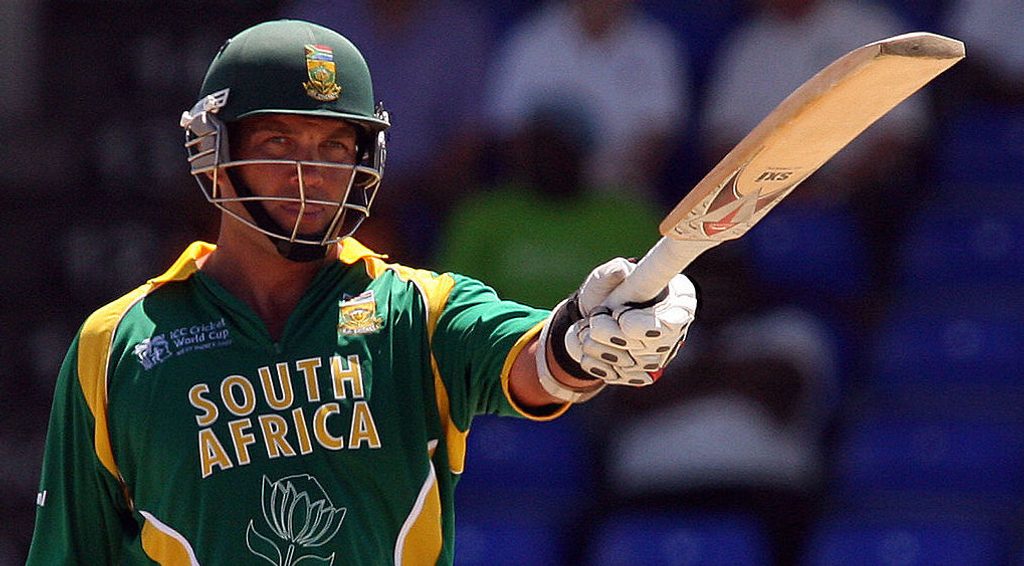 Jacques Kallis appeared in five World Cups for South Africa[/caption]
Jacques Kallis appeared in five World Cups for South Africa[/caption]
South Africa’s middle-order rock for close to two decades, Kallis featured in five World Cups, the last of which was in 2011. Debuting as a 20-year-old in 1996, Kallis went on to make 36 appearances and had a particularly fruitful 2007 edition, where he scored 485 runs at an average of 80.83.
With nine half-centuries, Kallis is only second behind Sachin Tendulkar in the list of batsmen with most World Cup fifties. His solitary World Cup hundred came against the Netherlands in 2007.
Sanath Jayasuriya (1,165 runs @ 34.26; 3 100s; 6 50s)
[caption id=”attachment_107965″ align=”alignnone” width=”800″]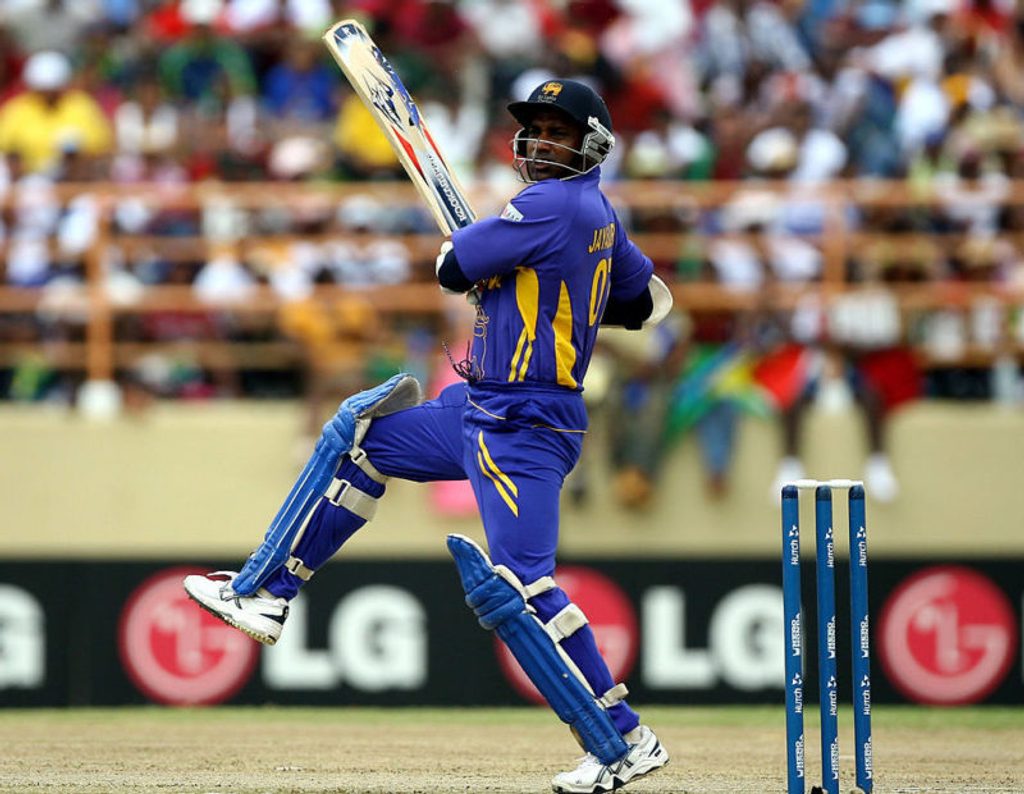 Jayasuriya ended the 2007 World Cup as the second-highest run-getter for Sri Lanka, behind Mahela Jayawardene[/caption]
Jayasuriya ended the 2007 World Cup as the second-highest run-getter for Sri Lanka, behind Mahela Jayawardene[/caption]
Key architect [and Most Valuable Player] in Sri Lanka’s 1996 title triumph, Jayasuriya played a part in five World Cups between 1992 and 2007, ending with 38 appearances. He made waves for his swashbuckling batting during the fielding restrictions in the 1996 edition and continued the trend throughout his playing career.
He captained the side to the semi-finals in 2003, scoring 120 in the group stages against New Zealand – his best World Cup score. With two centuries, as many fifties, and a tally of 467 runs, 2007 turned out to be Jayasuriya’s most successful edition with the bat.
Chris Gayle (1,186 runs @ 35.93; 2 100s; 6 50s)
[caption id=”attachment_578729″ align=”alignnone” width=”914″]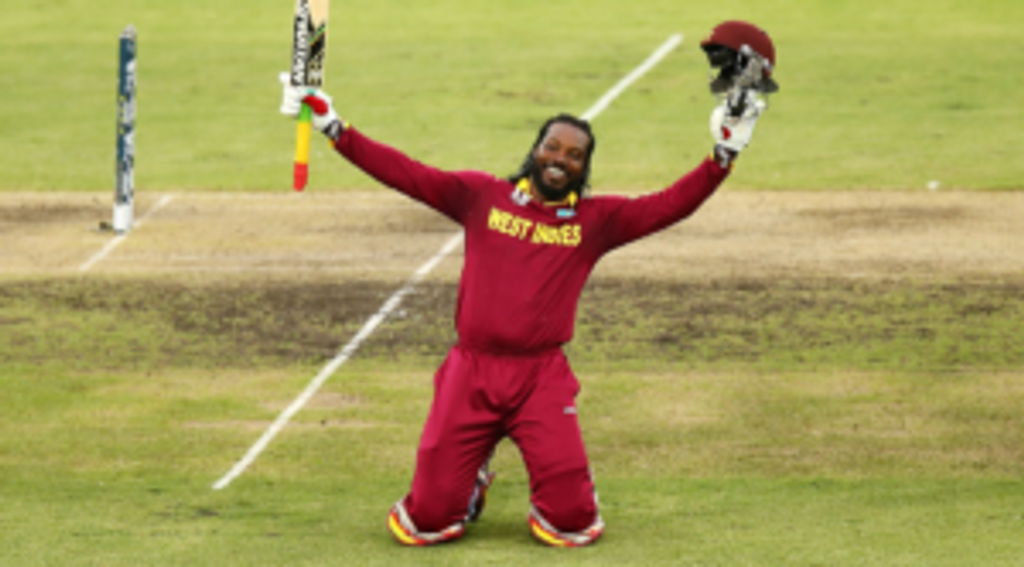 Chris Gayle scored 215 off 147 balls against Zimbabwe in 2015[/caption]
Chris Gayle scored 215 off 147 balls against Zimbabwe in 2015[/caption]
Gayle boasted the highest score in World Cup history for three days shy of one month. His mammoth 215 off 147 balls came against Zimbabwe in 2015 where he put on the biggest partnership in the tournament’s history (372) with Marlon Samuels. However, Gayle had to watch his record be broken in the quarter final as Martin Guptill scored an unbeaten 237 to knock the West Indies out of the tournament.
In Gayle’s final tournament in 2019, he gave glimpses of what he had previously been capable, scoring 87 against New Zealand. But his tournament was marked by feast or famine, a 13-ball duck against Bangladesh arguably his worst innings ever in the format.
AB de Villiers (1,207 runs @ 63.52; 4 100s; 6 50s)
[caption id=”attachment_72140″ align=”alignnone” width=”925″]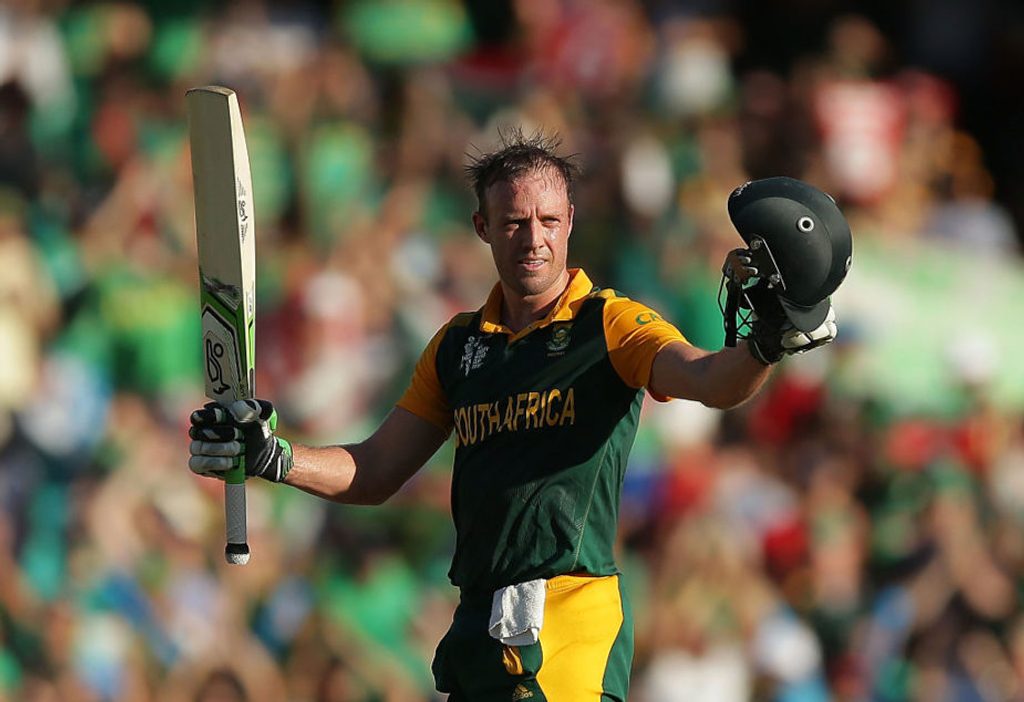 AB de Villiers hit four centuries in three World Cup editions[/caption]
AB de Villiers hit four centuries in three World Cup editions[/caption]
While he might not have won the elusive trophy in three attempts [2007, 2011 and 2015], de Villiers holds the distinction for being South Africa’s leading run-scorer in World Cups, averaging an impressive 63.52 – the highest on this list.
His debut World Cup, in 2007, ranged in extremes: four ducks and 372 runs in 10 appearances, including a strike-rate of over 100. In 2011, he hit two centuries, and, in 2015, amassed 482 runs, highlighted by a stunning 162 against West Indies – the fastest 150 in ODI history.
Brian Lara (1,225 runs @42.24; 2 100s; 7 50s)
[caption id=”attachment_107959″ align=”alignnone” width=”800″]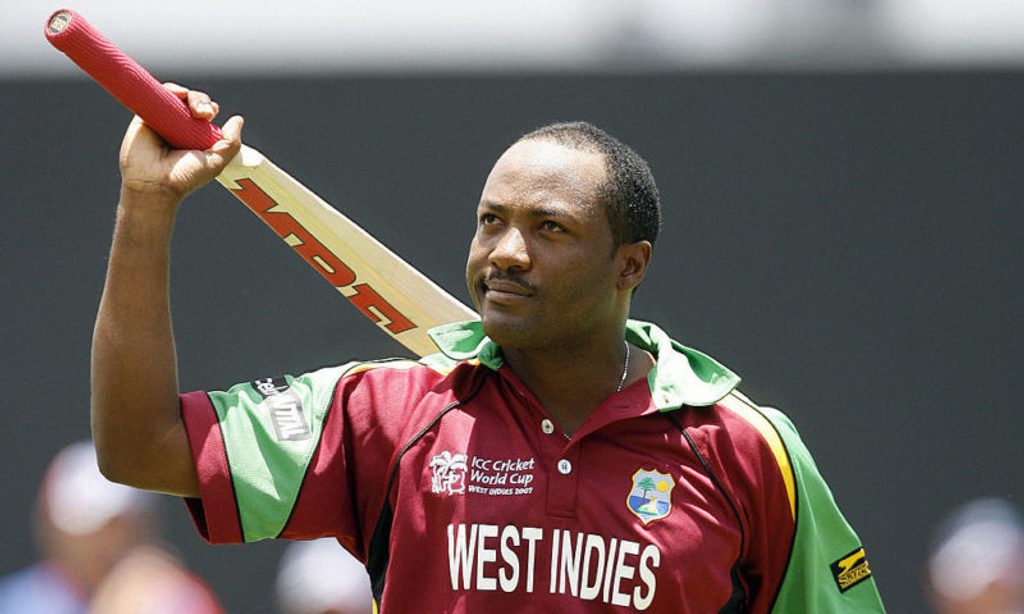 Brian Lara bowed out of international cricket with West Indies’ Super Eight exit in 2007[/caption]
Brian Lara bowed out of international cricket with West Indies’ Super Eight exit in 2007[/caption]
West Indies’ saviour for several years, Lara enjoyed a splendid World Cup career, even though it coincided with his side’s floundering fortunes, including three group-stage exits.
Part of five World Cup campaigns starting in 1992, Lara featured in 34 games, leading the side in 1999 and 2007. He hit two centuries, one each in 1996 and 2003, and, barring 1999, compiled at least 200 runs in all editions.
His best score, 116, came against hosts South Africa in the opening game of the 2003 World Cup. Lara’s final ODI appearance was his side’s Super Eight exit against England at Bridgetown.
Kumar Sangakkara (1,532 runs @56.74; 5 100s; 7 50s)
[caption id=”attachment_107963″ align=”alignnone” width=”800″]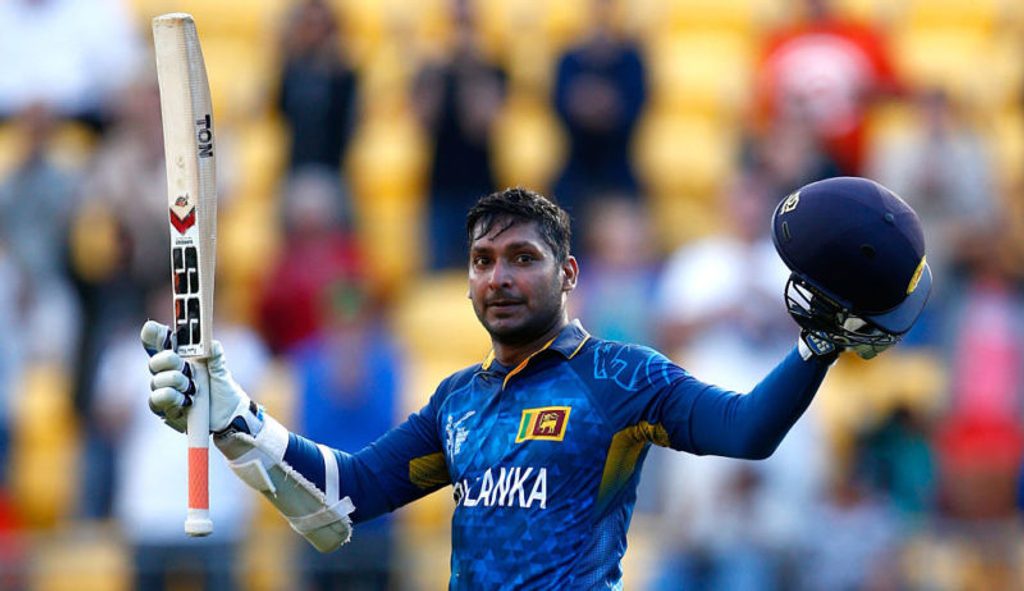 Sangakkara hit four back-to-back 100s in the 2015 World Cup[/caption]
Sangakkara hit four back-to-back 100s in the 2015 World Cup[/caption]
Statistically the most successful wicketkeeper in World Cup history [54 dismissals], Sangakkara is one of only three batsmen with more than 1,500 runs in the tournament, amassed over four editions from 2003-2015.
Sangakkara’s best World Cup was undoubtedly the 2015 one – his final ODI assignment in Sri Lankan colours. His tally of 541 runs that year, at an average of 108.20, included four back-to-back centuries [the first player to do so in ODIs].
As captain, he led the Lankans to the finals in 2011, scoring 465 runs at an average of 93.00, including a century and three fifties.
Ricky Ponting (1,743 runs@45.86; 5 100s; 6 50s)
[caption id=”attachment_107957″ align=”alignnone” width=”800″]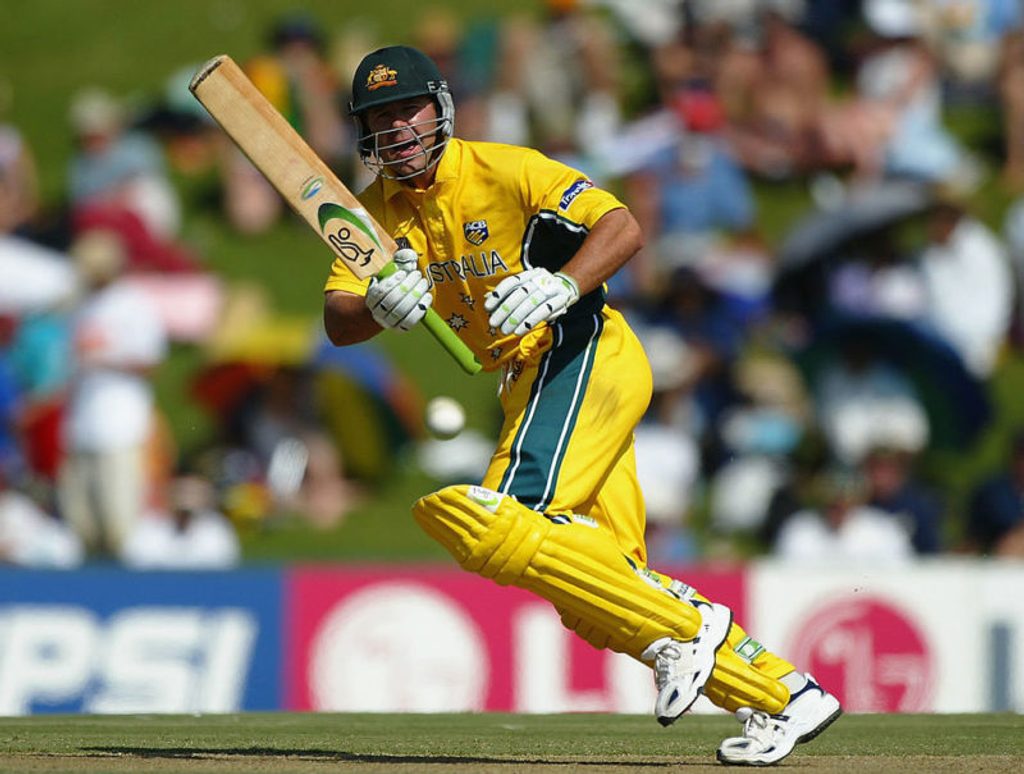 Ponting holds the record for the most number of World Cup appearances[/caption]
Ponting holds the record for the most number of World Cup appearances[/caption]
A three-time World Cup champion, Ponting is the most successful captain in the history of the tournament, winning 26 of the 29 ODIs in which he led Australia [including twin title wins in 2003 and 2007].
Ponting featured in five World Cups between 1996 and 2011, hitting five centuries, two of which came in 2003. His best-remembered World Cup knock, perhaps, came in the 2003 final, where he hit a 121-ball 140 at Johannesburg, motoring Australia to a total beyond India’s batting might.
Statistically, 2007 was his best edition with the bat, where he gathered 539 runs, at an average of 67.37, including a century and four fifties.
Sachin Tendulkar (2,278 runs@56.95; 6 100s; 15 50s)
[caption id=”attachment_107961″ align=”alignnone” width=”800″]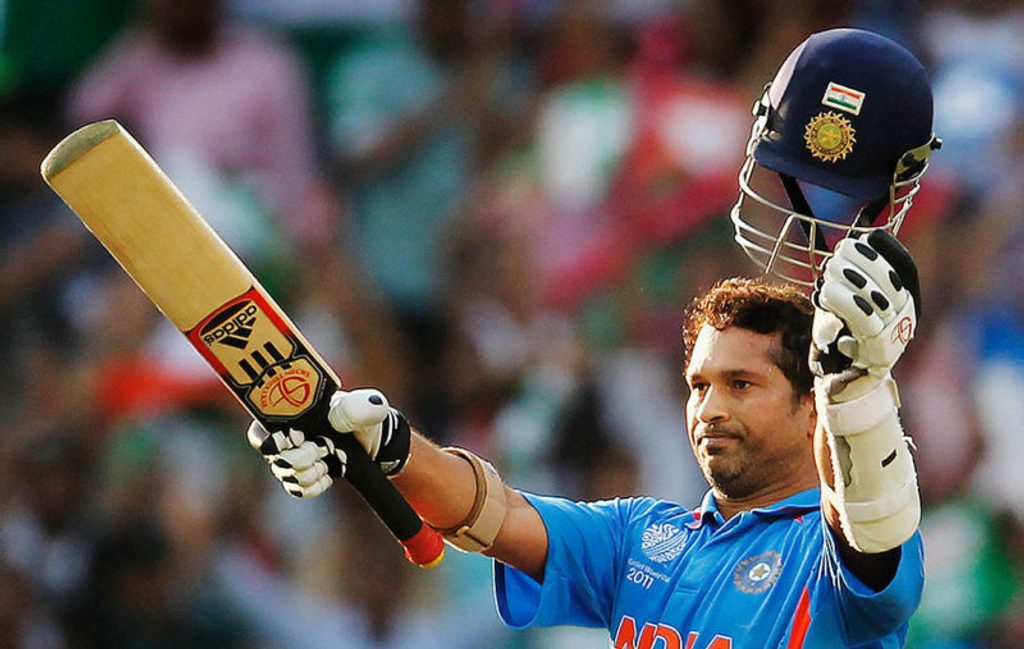 Sachin Tendulkar hit two centuries in his last World Cup in 2011[/caption]
Sachin Tendulkar hit two centuries in his last World Cup in 2011[/caption]
The leader on almost all major batting lists in World Cups matches, Tendulkar was a part of six Indian campaigns starting in 1992, and finally finished as a World Cup winner after 45 appearances. His tally of 673 runs in 2003 is still the most by a batsman in a single edition of the World Cup.
Excluding 2007, Tendulkar averaged over 40 in all the World Cups he played, featuring in two finals, and finishing with the most number of centuries, and half-centuries, among all batsmen.








